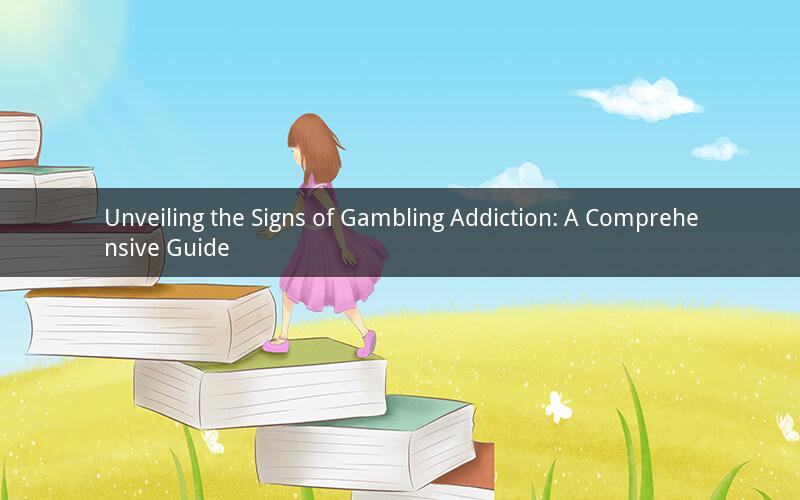
Introduction:
Gambling addiction is a serious issue that affects millions of people worldwide. Recognizing the signs of gambling addiction is crucial for early intervention and recovery. In this article, we will delve into the key indicators that suggest someone may be addicted to gambling, along with practical strategies to help overcome this addiction.
1. Uncontrollable Gambling Urges:
One of the primary signs of gambling addiction is an overwhelming urge to gamble. Individuals may find themselves thinking about gambling constantly, even when they are not engaged in the activity. They may experience intense cravings and a strong need to gamble, often leading to neglecting other important aspects of their lives.
2. Increasing Amounts of Money Wasted:
As gambling addiction progresses, individuals may start to spend increasing amounts of money on gambling activities. They may borrow money from friends, family, or even engage in illegal activities to fund their gambling habits. The addiction can lead to financial ruin, causing significant stress and turmoil in their lives.
3. Failed Attempts to Stop Gambling:
If someone repeatedly attempts to stop gambling but fails, it could be a sign of addiction. They may promise themselves that they will limit their gambling, only to find themselves unable to control their impulses. The addiction takes over, making it difficult to resist the urge to gamble.
4. Emotional and Psychological Symptoms:
Gambling addiction can have severe emotional and psychological consequences. Individuals may experience intense feelings of guilt, shame, and depression as a result of their gambling habits. They may also exhibit signs of anxiety, irritability, and mood swings. These symptoms can further exacerbate the addiction and make it even harder to overcome.
5. Neglecting Responsibilities:
One of the most noticeable signs of gambling addiction is neglecting responsibilities. Individuals may neglect their work, family, and personal commitments due to their preoccupation with gambling. This can lead to strained relationships, job loss, and overall deterioration in their quality of life.
6. Seeking Help and Support:
Recognizing the signs of gambling addiction is just the first step towards recovery. It is crucial for individuals to seek help and support from professionals, support groups, or trusted individuals. Therapy, counseling, and support groups can provide valuable guidance and resources to overcome the addiction.
Questions and Answers:
1. Q: How can I differentiate between harmless gambling and a gambling addiction?
A: If gambling is causing distress, impacting your relationships, and causing financial difficulties, it is likely a sign of addiction. It is important to evaluate the extent to which gambling is affecting your life.
2. Q: Can gambling addiction be cured?
A: Yes, gambling addiction can be treated and cured. It requires a combination of therapy, support groups, and lifestyle changes. With proper intervention and commitment, individuals can overcome their addiction and lead a healthier, more fulfilling life.
3. Q: Are there any treatments available for gambling addiction?
A: Yes, there are various treatments available for gambling addiction. These include cognitive-behavioral therapy, motivational interviewing, group therapy, and support groups. Medications may also be prescribed in some cases to manage associated symptoms.
4. Q: Can gambling addiction affect my family and friends?
A: Absolutely. Gambling addiction can have a profound impact on family and friends. It can lead to strained relationships, financial burden, and emotional distress. It is important for loved ones to seek support and resources to cope with the addiction.
5. Q: How can I support someone struggling with gambling addiction?
A: Show empathy and understanding. Encourage them to seek professional help and support groups. Offer to accompany them to therapy sessions or support group meetings. Be patient and supportive throughout their journey towards recovery.
Conclusion:
Recognizing the signs of gambling addiction is crucial for early intervention and recovery. By understanding the key indicators and seeking help, individuals can overcome their addiction and lead a healthier, more balanced life. Remember, there is hope, and with the right support and resources, recovery is possible.